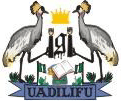The 2015 Corruption Perceptions Index clearly shows that corruption remains a blight around the world. But 2015 was also a year when people again took to the streets to protest corruption. People across the globe sent a strong signal to those in power: it is time to tackle grand corruption,” said José Ugaz, Chair of Transparency International.
The Corruption Perceptions Index 2015 published by Transparency International on 27 January 2016 shows that Rwanda improves the score by 5 and comes among the 5 least corrupt countries
in Africa and the first in East African Community.
The index covers perceptions of public sector corruption in 168 countries.
At the global level, Denmark took the top spot for the 2nd year, followed by Finland, Sweden, New Zealand, Netherlands and Norway. In the Sub-Saharan Africa, Botswana took the top followed by Cape Verde, Seychelles, Rwanda, Mauritius and Namibia.
Rwanda has improved its score from 49 in 2014 to 54 in 2015. This score was estimated as the average score of the G20 countries. While fourth best performer on the continent level and 44th
worldwide, Rwanda has again emerged the least corrupt country in the East African Community, followed by Tanzania, Kenya, Uganda and Burundi.
According the report conflict and war, poor governance, weak public institutions like police and the judiciary, and a lack of independence in the media characterize the lowest ranked countries. Corruption was perceived to be the highest in Angola, South Sudan, Sudan, Afghanistan, North Korea and Somalia.
The big decliners in the past 4 years include Libya, Australia, Brazil, Spain and Turkey. The big improvers include Greece, Senegal and UK.
The Corruption Perceptions Index is based on expert opinions of public sector corruption. Countries’ scores can be helped by open government where the public can hold leaders to account, while a poor score is a sign of prevalent bribery, lack of punishment for corruption and public institutions that don’t respond to citizens’ needs.
MUHIRE Hilaire
RIG
